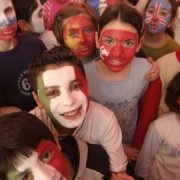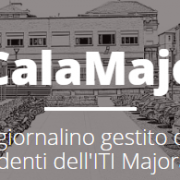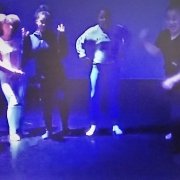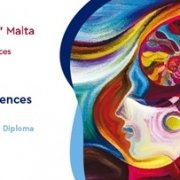UniClub
Excerpt
UniClub is a university-linked social initiative that aims to support newly arrived refugees and migrant youths in getting a foothold on the education system in Austria, in keeping track with the requirements and in developing their personal skills and confidence. The entire approach is based on the voluntary involvement of teacher training students as tutors and "Study Buddies".
Narrative, origins and objectives of the initiative
What kind of project is this? Please give a short description (summary) of it.
Uniclub was established to encourage and support refugee minors aged 13-19 years, who have a keen interest in educational opportunities, higher education and the university in general. After having been away from formal schooling for many months while leaving their home countries and/or being placed in refugee camps in other countries on their way to Austria, they struggle to continue their educational pathways in a different cultural context and in a language that is not their first language. The same applies to young people with a migration background who have not arrived to Austria very recently, but who are lacking sufficient support in education within their families due to socio-economic conditions and opportunities.
The overall objective is to support them in getting back on track in education by entering upper-secondary level or vocational training (including high school leaving certificate) successfully – and at the same time to support them in the development of individual skills in a safe and caring environment, which will allow them to excel in the long run. The main aim is to support them in getting a foothold on the upper secondary level in Austria and keep track with the requirements.
UniClub provides learning support in groups as well as individual tutoring as a full week programme during the entire academic year. Moreover, a wider range of workshops and excursions are offered with the aim of enhancing beneficiaries’ motivation, self-confidence, personal orientation and skills – as well as progress in language skills. Continuous psychologist support is available for the whole program.
The programme is built around the involvement of teachers training students on HE tertiary level, mostly from programs arranged by the Zentrum für LehrerInnenbildung (ZLB - Teacher Training Department at the University of Vienna) as part of their curriculum. Even after completion of these particular courses, many of them stay active as “Study Buddies” on a voluntary basis.
In this regard, the UniClub model aims to foster mutual learning among teacher training students and young people of diverse origin and backgrounds and inspire future teachers with ideas and requirements for a more inclusive and reflective society.
Please tell us why, in general, this project is considered a successful one?
There is quantitative evidence that proves a sustained interest in the activities and a stable number of beneficiaries, only limited by the available resources.
On a qualitative level, there is anecdotal evidence that suggests a very high level of satisfaction on the side of the beneficiaries, expressed through motivation, raised self-confidence, enhanced orientation and personal skills – as well as progress in language skills.
There is evidence that the reflections of students’ involvement in the UniClub lead to a positive change of mindsets in the volunteering students. Moreover, impact is perceivable on an institutional level with respect to the organisation and implementation of teacher training curricula, where awareness is increasingly raised for changing demands in education vis-à-vis migration, multi-lingualism and multi-culturalism and non-traditional pathways in education.
And why would you consider it a grass-roots initiative?
UniClub was initiated by the staff of Vienna University Children’s Office as an immediate reaction to the immensely growing number of incoming refugees in the summer/fall of 2015.
In face of big crowds of people stranded at train stations and in provisional shelter camps, the initial idea was to provide space in an office building that was only used occasionally before.
This space was made available at certain times in a week for young people to have a safe and quite place where they could have access to computers and internet. They could also communicate with friends and families and have access to information and language learning resources.
Apart from available rooms and IT infrastructure, the initial idea was implemented without any kind of guaranteed resources or fixed staff.
During the past 30 months, the project has repeatedly been adapted and developed further with respect to experiences made, the resources that became available and the numbers of participants in the program. What was started from scratch as a grassroots initiative has turned into a profound and well-structured approach of a learning and engagement environment for migrant school students with practical and strategic links into the academia.
What challenges needed to be solved in this project?
As a grassroots initiative many challenges had to be solved on the way to a continued and sustainable implementation – most of all with respect to funding, to the adaptation of the concept in accordance with the actual expectations and demands, to developing trust on the side of the beneficiaries and commitment on the side of student volunteers as well as on the side of the involved academic key players and departments.
Is this initiative based on any particular theoretical framework? Which one?
The initial idea was not based on any theoretical concept, as it was set up from scratch within a very short period of time. However, it has been guided by the basic principles and ethical framework that apply to all activities of Vienna University Children’s Office: Respect and appreciation for the beneficiaries of an activity, engagement at eye level, voluntarism and the absence of pressure to perform and the ambition to set up interventions that have a real value for the beneficiaries without any commercial/ideological/political interest.
As more and more engagement models within UniClub were enhanced and set in line with academic research and teaching – mostly due to cooperation with the Zentrum für LehrerInnenbildung (ZLB) (Teacher training department at the University of Vienna) and the targeted involvement of teacher training students – advanced focus was put on models of social learning, service learning and multilingual education.
This was particularly enhanced by the fact that ZLB has a particular commitment to the Third Mission of HE and has experience in implementing appropriate action in this regard.
(https://lehrerinnenbildung.univie.ac.at/ueber-uns/third-mission/)
(Appendix) Is your intervention standing on its own or is it a part of a bigger and more holistic approach?
UniClub was partly built upon previous project activities in this field. It was, however, implemented as a rather stand-alone initiative in the beginning due to its very specific focus on newly arrived refugees. Today it is more and more linked with other activities and projects within the sphere of Vienna University Children’s Office – with respect to staff, knowledge, resources and topics. Moreover, it is in line with particular policy priorities, which are subject of governmental funding programmes, from which the UniClub is receiving partial funding. Even more important, it did get substantial support through the commitment of the Zentrum für LehrerInnenbildung (ZLB, Teacher training department at the University of Vienna) because of their Third Mission agenda.
Please describe the group(s) intended as beneficiaries of this initiative
Why has this group (have these groups) been chosen?
The initial group of beneficiaries – minor refugees, either unaccompanied or with family members, who newly arrived in Austria – has been chosen because of the fact that there was an urgent and inevitable need in the fall of 2015. The initial contact was made through NGOs, civil society organisations and volunteer groups that were active during that time. Moreover, peer contacts among the beneficiaries were used to get contact into groups of beneficiaries from the same cultural, geographical or language area – which also helped to achieve awareness and trust on the side of the newly arrived rather quickly.
While the UniClub approach was polished, enhanced and aligned with changing needs of beneficiaries, additional emphasis was put on such addressees with migration background who may have lived in Austria for some time and who have the potential to excel in education or vocational training, but who were facing impairment due to cultural, socio-economic or language issues that hinder them to achieve their full potential and to keep track in formal schooling.
However, the prior focus was on young refugees who arrived in the summer/fall of 2015, who are still in their asylum procedure or who have recently obtained their asylum certificate, who made their first steps into secondary education and who are trying to catch up with the formal curricular requirements at that level.
Could you please tell us something about the relative size of the (of each) target group, within the school/university population, region and/or country?
Historically, Vienna has always had a relatively high share of the population with a migration background. Currently (2017) approx. 44% of the Vienna population (approx. 1,85 Mio. in total) have a history of migration in 1st or 2nd generation, which means that both parents were born outside Austria and the individuals were either born inside or outside Austria.
http://www.statistik.at/web_de/statistiken/menschen_und_gesellschaft/bevoelkerung/bevoelkerungsstruktur/bevoelkerung_nach_migrationshintergrund/index.html
With respect to age groups of school age, between 60% and 70% of the total population aged 5-19 years have a background of migration. In the age group of the 0-4 years, this proportion equals 75% (1st and 2nd generation).
Since 2015, approx. 160.000 were seeking asylum in Austria, of which between 37% and 46% were granted asylum status - with the biggest proportion of these (approx. 33%) settled in Vienna. By mid 2018 approx. 18.500 asylum seekers are sill under stage care with unclear asylum status, of which 28% are of minor age.
http://fluechtlinge.wien/downloads/FSW-Fakten_Mai2018.pdf
Which social characteristics are taken into account and what is the geographical area covered?
The basic criterion is that beneficiaries have a background of migration – either as newly arrived refugees or having lived here for some time already. They have a strong interest in their educational opportunities and try to continue their pathways, both toward higher education as well as (in some cases) towards dual vocational education and training.
A relevant aspect of social characteristics is the one of peer effects – in the sense that current beneficiaries encourage peers from their social environment to join the activities as well, which has a notably effect on the social composition and dynamics of the interventions. (Joining the activities at all levels is always possible without prior announcement, however an introductory interview is required at a later stage. In any case, the initial access is very low-threshold and informal.)
The activities are implemented in Vienna and this is also where most of the beneficiaries reside. However, the programme is also attractive for some beneficiaries from the wider Vienna area. Currently, countries of origin are mostly Syria, Afghanistan and Nigeria.
On which level is the project implemented?
Please describe the political and socio-economic factors that you believe have been important enablers for your initiative
Did the initiative have political support?
UniClub gets or did get partial funding from the following Federal Ministries in Austria as it fits into particular parts of their funding programmes:
Federal Ministry for Europe, Integration and Foreign Affairs; Federal Ministry of Labour, Social Affairs, Health and Consumer Protection; Federal Ministry for Science, Research and Economy; Federal Ministry of Agriculture, Forestry, Environment and Water Management.
Besides their financial contribution, policy support has not been excessive so far and there are other programmes initiated by the state in parallel (most relevant the “Jugendcollege“ and other initiatives provided by NGOs) with the aim of qualifying young refugees to successfully enter upper secondary education or vocational training.
Moreover, the University of Vienna provides financial support to the UniClub programme as part of their Diversity and Third Mission agenda.
How did it fit with local, regional or national policies?
In 2015, there was a notable number of grassroots initiatives that were implemented to cope with the situation that were not directly associated with any policy preference. Meanwhile, quite some of these and similar new activities were partly geared towards policy priorities in order to fit into particular funding schemes – and adjustments were made where required and feasible.
Who are the stakeholders supporting the initiative?
Most relevant stakeholders and intermediaries are practitioners and committed experts at practical level or in middle management positions in schools, NGOs, neighbourhoods and civic society organizations, youth centers, non-formal learning establishments or municipality administrations. Moreover, particular stakeholder support comes from faculty members of the University of Vienna at various levels, notably from the Zentrum für LehrerInnenbildung (ZLB, Teacher training department at the University of Vienna).
Are there particular demographic changes present that are influencing the project?
The overall approach is basically influenced by a rising number of young people with a migration background in Vienna, who are faced with barriers in achieving their full potential in formal education. In particular, the adaptation of exiting know-how from similar project strands towards the model of UniClub was directly influenced by the refugee situation in Europe in the summer/fall of 2015.
What is the institutional strategy and culture of the (educational) organization?
Vienna University Children’s Office is fully committed to the ideas of diversity and social inclusion while promoting education opportunities through science engagement programs. We pay full attention to children and young people whose pathway to continuing or higher education is not a well-beaten track as they may be lacking information, confidence, culture and language to achieve their full potential.
To what extent does the initiative have an influence on institutional policy (or potential influence) of the (educational) organization?
This is difficult to answer in all aspects, as the initiative has in operation for 30 months only. However, there is already a notable impact as some courses and programs at the of the Zentrum für LehrerInnenbildung (ZLB) (Teacher training department at the University of Vienna) have promoted and acknowledged the personal and voluntary engagement of their students as tutors and “Study Buddies” with the Uniclub as part of their practical training.
In this regard, there is a notably back-flow of experiences into teacher training and future generations of teachers in general. The experiences made as UniClub volunteers are regularly discussed and reflected within the University as part of their practical training and thereby have the potential to feed back into the program administration and curricula – and lead to required adaptations in teacher training with respect to migration, multi-multiculturalism and non-traditional pathways in education. So far, a total of 350 teacher training students were involved in the programme as volunteers.
In general, the social dimension of science engagement models, which were developed and implemented at Vienna University Children’s Office, had an impact on the development of a Third Mission Strategy of the University of Vienna as the parent organisation, perceivably from particular formulations in their organisational development plans. They also had impact on the development of national funding models in science outreach and social engagement.
(Appendix) Is there public support for your initiative and the issue it addresses?
Yes, the initiative receives partial funding form public sources (see above).
(Appendix) What other factors do you think have been important for the success of this initiative?
Most of all the personal commitment of all facets of social dimensions in science engagement, the high level of professionalization in the implementation of activities as well as the continuity in the ambition to serve as a competent and trustful key player organisation in this field.
Please describe the overall initiative design and the methods and tools used to reach the goals
Please describe the specific activities carried out.
The UniClub model is based on the following activities:
“LernClub” - Located in the city center, it provides room to meet friends, to study, to prepare presentations, to do homework – all with support of student volunteers (approx. 45 currently). It is open twice a week (3 hrs) for 50 weeks a year. (approx. 35 visitors/day)
“StudyBuddy” - offers continuous 1:1 learning support for pupils throughout the semester provided by teacher training students. They meet for 1-3 hrs/week for working on assignments and homework. (There are currently 55 StudyBuddy pairs.)
“Workshops and excursions”: half day workshops and excursions at the University of Vienna, at other research organisations and businesses as well as at other places of interest within the living sphere of the beneficiaries, that include meetings with researchers and academic staff (twice a month with 15-50 participants).
Currently, a total of approx. 200 young people and 100 teacher training students are active in the programme.
What were the key roles (teacher, student, management team etc.) within the project?
The major role is taken by volunteer students and teacher training students, who support the most relevant parts of the programme as tutors and StudyBuddies.
However, this would not be possible in the same way without the commitment of faculty members as stakeholders who are involved in the particular teacher training programmes and courses on curriculum or administrative level and the personal commitment of project coordinators at Vienna University Children’s Office. Project coordinators do have a profound background in project management and social work/youth work – which is an inevitable prerequisite for the successful professional, reliable and trustful engagement with the beneficiaries.
As a relevant supportive element, continuous psychological support is available for the whole program for beneficiaries, teacher training students and project coordinators.
What ideas, tools, theories, models, methodology (etc.) have been used to reach the goals?
The program is not based on predetermined and “evidence based” sets of ideas and models. The way the UniClub model was implemented and adjusted was “experience based” – with respect to the knowledge that was available from further science outreach and social engagement. Moreover, adjustments were made according to the needs and demands which the beneficiaries themselves have expressed as relevant for them, and not according to fixed methodologies.
Depending on the particular course in teacher training or the particular study field, relevant methodological focus points are in social learning, service learning and multilingual education.
Moreover, ethical principles, which are fundamental to the whole range of project activities implemented by Vienna University Children’s Office relevant to the UniClub with particular emphasis, as the extent of social engagement is constitutive for the entire model.
What are the final revenues of the project?
Please describe if your project ensured its sustainability
If so, how did you ensure the short-term impact of the project?
Due to the above-mentioned principles, there is a constant number of beneficiaries who join the program on a regular level and more interest is perceivable. However, the number of beneficiaries is limited by the available space and number of student volunteers (resources). The short-term impact of the project is notably supported by a high level of commitment among all involved actors and also by the positive effects of peer effects among trustful and contented beneficiaries.
And how did you ensure the long-term impact of the project?
The project has only been operational for 30 months, so the long-term impact is difficult to anticipate. The most relevant factors to ensure long-term impact will be a continuity in funding and a stable number of student volunteers.
Has your project been replicated elsewhere?
Not that we know of.
Please tell us about the resources used in this initiative
What was the budget for the initiative?
The initial budget was zero, apart from some in-kind contribution for rooms, equipment and in particular for IT-infrastructure.
Currently, the overall budget is approx. 100.000 EUR per year for coordination and implementation. Approx. 75% of the budget is covered from public/governmental sources, approx. 25% are from the University of Vienna.
How much did the initiative depend on volunteers?
The initiative would not be possible without the involvement and the commitment of student volunteers. Currently, approx. 100 students are involved on a regular basis.
How were the costs perceived by the public/the sector/other stakeholders?
To what extent did the initiative achieve its objectives?
Please describe the evidence to support the success of your initiative.
There is no standardized approach of evaluating the UniClub approach on a regular level. However, there is some quantitative data collected and compared, which is capable of showing the progress of the programme in this regard. Moreover, there is qualitative evidence based on own observations, regular feedback within courses of the teacher training programmes, feedback from ZLB course administrators as well as fragmented academic research, mostly in students’ theses. These findings suggest that there is an impact on personal orientation and skills of beneficiaries as well as on attitudes and mindsets of students' personal and voluntary engagement to their tutors and “Study Buddies” with the Uniclub as part of their practical training.
In this regard, there is a notably backflow of experiences into teacher training and future generations of teachers in general. The experiences made as UniClub volunteers are discussed and reflected within the University courses on a regular basis as part of their practical training and thereby have the potential to feed back into the program administration and curricula – and lead to required adaptations in teacher training with respect to migration, multi-culturalism and non-traditional pathways in education. So far, a total of 350 teacher training students were involved in the programme as volunteers.
In general, the social dimension of science engagement models which were developed and implemented at Vienna University Children’s Office did have an impact on the development of a Third Mission Strategy of the University of Vienna as the parent organisation, perceivably from particular formulations in their organisational development plans. They also had impact on the development of national funding models in science outreach and social engagement.
Did the intervention lead to any unintended (positive) outcomes?
There is evidence that the implementation of the UniClub did have positive effects through overlaps with other project strands, which were not intended initially. Moreover, there seems to be a highly satisfying and motivating momentum within the entire staff of Vienna University Children’s Office deriving from the UniClub, even among those who are not directly involved in the UniClub implementation.
What indicators (quantitative and qualitative) have you measured to demonstrate success?
In order to report back to funding authorities and for financial justification, some quantitative indicators are prepared and compared at regular intervals. These indicators provide evidence of the quantitative goal attainment with respect to e.g. the number of beneficiaries, the number of interventions, average attendance, number of counseling sessions etc.
Moreover, there is qualitative evidence on anecdotal level arising from students’ reflections and bilateral conversation, that the involvement in the UniClub does have an impact on personal attitudes and awareness of the overall objectives of the approach.
This is taken further in the sense that UniClub also serves as an environment of academic research, either by faculty members who are also involved in the UniClub as lecturers etc., or within students' theses on all levels, which are prepared by volunteers for their university courses. Scientific research within UniClub is dealt with all ethical implications that apply.




 Simona Cerrato
Simona Cerrato



